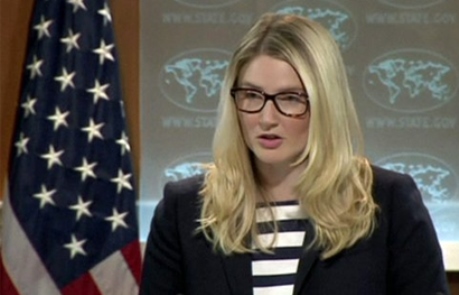"We extend our condolences to the families of those killed or injured and call on the sides to take immediate action to reduce tensions and respect the cease-fire. There can be no military solution to the conflict. Retaliation and further violence will only make it more difficult to bring about a peaceful settlement", she said.
"The United States urges the Presidents of Armenia and Azerbaijan to meet at the earliest opportunity to resume dialogue on key issues. We also call on the parties to accept the proposal from the Organization for Security and Cooperation in Europe Chairman-in-Office to enter into negotiations which can lead to the conclusion of a peace agreement. We remain committed to participating in the Minsk Group process and stand ready to help efforts to bring about a lasting settlement", Marie Harf said.
Around eight servicemen of Azerbaijani armed forces have been killed during the fighting over the last three days, the Azerbaijani Defense Ministry said on August 1.
The conflict between the two South Caucasus countries began in 1988 when Armenia made territorial claims against Azerbaijan. As a result of the ensuing war, in 1992 Armenian armed forces occupied 20 percent of Azerbaijan, including the Nagorno-Karabakh region and seven surrounding districts.
The two countries signed a ceasefire agreement in 1994. The co-chairs of the OSCE Minsk Group, Russia, France and the U.S. are currently holding peace negotiations.
Armenia has not yet implemented the U.N. Security Council`s four resolutions on the liberation of the Nagorno-Karabakh and the surrounding regions.
More about:















































